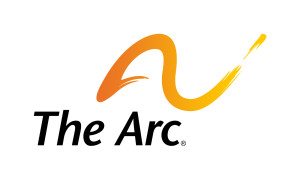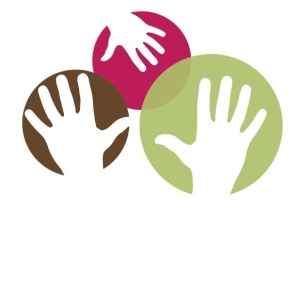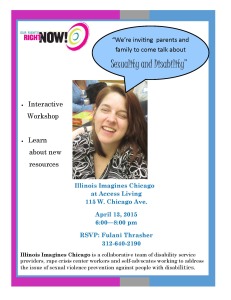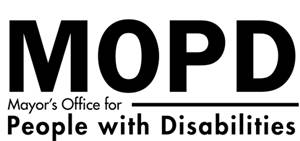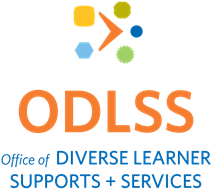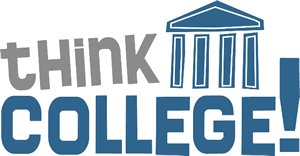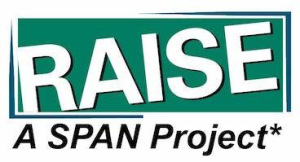 Self-Advocacy for People with Disabilities during Hospitalization
Self-Advocacy for People with Disabilities during Hospitalization
A transition resource source from RAISE A Span Project
Although hospital stays are difficult for everyone, individuals with disabilities may have unique challenges. These can range from inaccessible buildings, medical equipment and tests, to lack of ASL interpreters. Also, some providers have implicit biases based on their misperception of people with disabilities.
Did you know?
Know your rights! People with disabilities can have a support person with them in the hospital if needed[i]. Advocates noticed that disabled individuals were isolated during COVID, even if they couldn’t communicate with health professionals. Support persons are not visitors. They can be present at any time, not just during visiting hours. Support people can help someone with a disability with personal care as well as to communicate, understand and make decisions.
Provider Bias
People with disabilities need to be aware of bias. Unfortunately, some providers who see disability under a medical model sees conditions as something needing to be fixed.[ii] People with disabilities may be seen as having a lesser quality of life, which is untrue. Due to provider bias or even refusing to take patients with disabilities, this contributes to health disparities and worse outcomes for people with disabilities. Less than half of providers are confident in their ability to provide appropriate care, or welcome people with disabilities to their practice. In addition, approximately only half of the providers studied have accessible offices and equipment.
What Can Be Done?
Besides provider training, a good starting point was when The Center for Dignity in Healthcare for People Disabilities countered these stereotypes and discrimination with recommendations for prenatal care, transplants, mental health, and end-of-life care. People with disabilities can self-advocate, or families can help them speak up, in medical settings by checking out tools for self-determination (see Resources).
Tips for a Hospital Stay
Although hospitalization is stressful, there are things you can do to help minimize this. A go-bag (even for unplanned E.R. trips) could include:
- One-day supply of medications/water bottle (until hospital pharmacy takes over)
- ID, insurance card, phone/charger, keys
- Other important papers like one pagers (medical conditions/allergies, medication list, hospitalizations list, specialists/primary care provider phone numbers) in a folder with blank paper/pen to take notes
- Personal care supplies
- Change of clothes to go home
Other than preparing ahead of time, once you’re at the hospital:
- Communicate with your medical team, with the help of a support person if needed. The call button must be accessible at all times.
- Make sure you ask the nurse about any medication changes.
- Ask for results of any tests, procedures, or lab work.
- Use shared decision-making with providers in deciding on care/treatment.
- Ask about supportive services if needed like physical/occupational/speech therapy or respiratory therapy.
- Technology can be helpful such as bed alarms for wandering or seizures, locking bed positions/bedrails, and even cameras so caregivers can rest at night.
- Make sure everything is in place before you go home like home health care, visiting nurse, therapists, or medical equipment.
People with disabilities should have equity in access to medical care. These steps will help ensure equal treatment and better healthcare outcomes.
One family’s story
A parent was helping her daughter be as independent as possible, and a support person was there except at night. When she was having problems walking, rather than diapers, the support person requested a bedside commode and physical therapy to get her strength back. The patient was told to question any medication changes or call a family member. This patient with autism was taught to (nicely) ask for quiet if aides were keeping her up with the TV, computer or iPhone. When that didn’t work, she was to call the nurse. Unfortunately, one of the aides took away the nurse call button until the support person spoke with the nursing supervisor.
Resources
Know Your Rights: People with Disabilities Can Have a Supporter in the Hospital
[i] https://portal.ct.gov/-/media/Coronavirus/20200609-DPH-Order-regarding-patients-with-disabilities-in-health-care-facilities.pdf
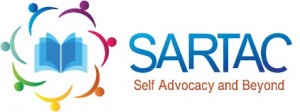
[ii] https://www.healthaffairs.org/doi/full/10.1377/hlthaff.2022.00475
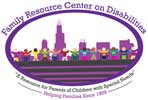




 Community Engagement:A Pathway to Competitive Integrated Employment
Community Engagement:A Pathway to Competitive Integrated Employment